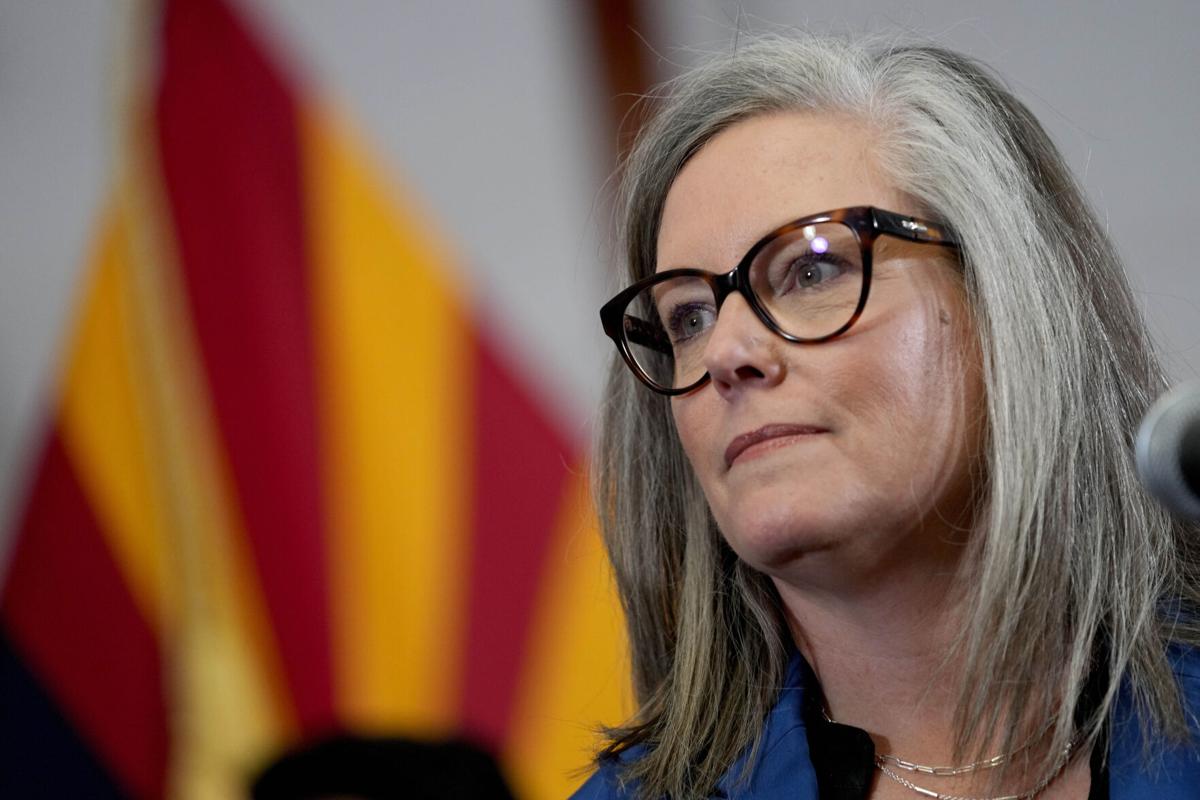PHOENIX — Gov. Katie Hobbs has given up on trying to force the Senate to confirm her nominees to head state agencies.
In an agreement filed in court late Monday, Hobbs agreed to again start sending names of her choices to the Senate, if not immediately, at least when the legislative session begins in January. Once she does that, they can serve for up to a year without Senate action.
But nothing in the deal forces the Senate to provide her picks with any better treatment than many got last year. It was that treatment — which Hobbs called “disrespectful” — that led her to withdraw the names and instead use a procedure to set them up to keep running the agencies without Senate approval.
That would have continued except for the fact that Republican Senate President Warren Petersen sued the Democratic governor. Judge Scott Blaney ruled in June that Hobbs had acted illegally.
At that time, the judge didn’t order her to do anything. Instead, he agreed to give Hobbs a chance to work things out with the Senate.
Blaney made it clear, however, that if the two sides did not have something in place by this coming Wednesday, he would use his powers to force compliance.
This new deal saves Hobbs the embarrassment of such an order.
Monday’s agreement is a key victory for Petersen, a Gilbert Republican. If nothing else, it keeps in place Blaney’s original order that Hobbs was acting illegally.
Potentially more significant, nothing in the order requires there be any change in how the special Director Nominations Committee created by Petersen handles each of the governor’s picks. There also is nothing in the order addressing Hobbs’ contention that Sen. Jake Hoffman, R-Gilbert, who chairs that panel, acted improperly in the questions he asked her nominees.
About the only thing Hobbs may have gotten is she will not be asked to pay the legal fees for the GOP-controlled Senate.
There was no immediate comment from the governor about the deal.
But Petersen, in a prepared statement, said the agreement amounts to Hobbs admitting she broke the law. He said it preserves the confirmation process and the check it serves on gubernatorial powers, and stops what he called her efforts “to force unlawful and extreme agendas on our citizens.’’
“I look forward to reinstating the confirmation process so that we can properly vet director nominations in an effort to ensure only the most qualified candidates are serving in these critical roles,’’ Petersen said.
The fight stems from Petersen’s decision to create the special committee to give gubernatorial nominees more than what he said had been a cursory review.
A few of Hobbs’ nominees were confirmed and some were rejected.
But by last September, the committee had left 13 in limbo.
They would have been allowed to serve as directors for up to a year. But if they were not confirmed in that time, the governor would have to name someone else.
Hobbs, rather than waiting, withdrew those 13 names.
She then used a maneuver to have each named “executive deputy director’’ of the same agencies. And given there was no director, that left each back in charge, despite the fact they had not been confirmed by the Senate as required by state law.
Hobbs said that maneuver was the only way to ensure there was someone of her choosing in charge at each agency and that the departments continued to function.
Blaney, however, was unimpressed.
“The governor ... took those actions for an improper purpose, culminating in an improper result — one that violates Arizona law,’’ he wrote.
Blaney also criticized Hobbs for arguing that state law allows her to appoint deputy directors, even without directors over them who are subject to Senate confirmation. He said under Arizona law, the people who run state agencies are subject to Senate confirmation, regardless of what they are called.
“That process requires oversight by the legislative branch,’’ Blaney said. “Here, the governor willfully circumvented that statutory process and eliminated the legislative branch from its executive role.’’
The judge said if he were to agree with her arguments it would “render meaningless’’ a host of other state laws dealing with state agencies.
A bid by Hobbs for intervention by the state Court of Appeals was rebuffed. That left Hobbs to either work something out with Petersen before Wednesday or face a court order from Blaney.
The judge did not dispute the governor’s contention that Hoffman and the Senate had tied up the confirmation process and left her picks, and the agencies they head, in a legal limbo. But that, he said, carries no legal water.
“The governor’s frustration with a co-equal branch of government ¯ even if that frustration was justified — did not exempt her director nominees from Senate oversight,’’ he wrote.
Get your morning recap of today's local news and read the full stories here: tucne.ws/morning





